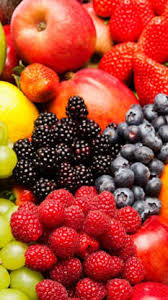
When aiming for weight loss, incorporating fruits that are low in sugar and high in nutrients can be a strategic way to satisfy sweet cravings while supporting your health goals. Fruits provide essential vitamins, minerals, and fiber, which can promote satiety and aid digestion, making them ideal for weight management. Below, I’ll highlight eight low-sugar fruits that can be particularly beneficial for weight loss, along with insights into how they contribute to a healthy diet.
Table of Contents
1. Berries (Strawberries, Raspberries, Blackberries, Blueberries)
Why They Help with Weight Loss:
Berries are among the best fruits for weight loss due to their low sugar content, high fiber levels, and rich antioxidant properties. For example, a cup of strawberries contains only about 7 grams of sugar and 3 grams of fiber. The fiber in berries helps promote feelings of fullness, reducing the likelihood of overeating. Moreover, the antioxidants in berries, such as anthocyanins, have been linked to reduced inflammation and improved metabolism, which are beneficial for weight management.
How to Incorporate Them:
Berries can be added to smoothies, yogurt, oatmeal, or eaten on their own as a snack. Their natural sweetness makes them a great substitute for high-sugar desserts.
2. Avocado
Why It Helps with Weight Loss:
Though technically a fruit, avocados are unique in that they are low in sugar and high in healthy fats, particularly monounsaturated fats. A whole avocado contains less than 1 gram of sugar and provides a substantial amount of fiber (about 10 grams per fruit). The healthy fats in avocados can help control hunger by keeping you satisfied for longer periods, reducing the temptation to snack on unhealthy foods.
How to Incorporate It:
Avocados can be added to salads, spread on whole-grain toast, blended into smoothies, or used as a topping for various dishes. Their creamy texture also makes them a great base for healthy desserts like avocado chocolate mousse.
3. Citrus Fruits (Lemons, Limes, Grapefruits)
Why They Help with Weight Loss:
Citrus fruits are low in sugar and high in vitamin C, an antioxidant that supports immune function and skin health. Grapefruits, in particular, have been studied for their potential role in weight loss. A medium grapefruit contains about 9 grams of sugar and is high in water content, which helps you feel full while consuming fewer calories. Additionally, some studies suggest that consuming grapefruit before meals can reduce overall calorie intake.
How to Incorporate Them:
Citrus fruits can be enjoyed on their own, juiced, or added to salads, water, or tea for a refreshing flavor. Grapefruit segments can be a tangy addition to breakfast bowls.
4. Apples
Why They Help with Weight Loss:
Apples are widely available and low in sugar, with a medium apple containing about 19 grams of sugar and 4 grams of dietary fiber. The high fiber content, particularly pectin, helps slow down digestion and prolongs the feeling of fullness. Apples also have a low glycemic index, meaning they release sugar slowly into the bloodstream, preventing spikes in blood sugar and subsequent cravings.
How to Incorporate Them:
Apples can be eaten fresh as a snack, sliced into salads, or baked with a sprinkle of cinnamon for a low-sugar dessert. Pairing apple slices with a source of protein like peanut butter can further enhance satiety.
5. Peaches
Why They Help with Weight Loss:
Peaches are a delicious, low-sugar fruit that can satisfy sweet cravings without derailing weight loss efforts. A medium peach contains about 13 grams of sugar and 2 grams of fiber. Peaches are also low in calories and rich in vitamins A and C, which are essential for skin health and immune function. The natural sweetness of peaches can help curb the desire for sugary treats, making it easier to stick to a healthy diet.
How to Incorporate Them:
Peaches can be eaten fresh, added to smoothies, or grilled for a caramelized treat. They also pair well with Greek yogurt or cottage cheese for a balanced snack.
6. Kiwi
Why It Helps with Weight Loss:
Kiwi is a nutrient-dense fruit that is low in sugar, with a medium kiwi containing about 6 grams of sugar and 2 grams of fiber. Kiwis are also rich in vitamin C and other antioxidants, which help combat oxidative stress and inflammation, both of which can hinder weight loss. The high fiber content in kiwi aids digestion and promotes a feeling of fullness, reducing the likelihood of overeating.
How to Incorporate It:
They also add a refreshing flavor to water or iced tea.
7. Melons (Watermelon, Cantaloupe, Honeydew)
Why They Help with Weight Loss:
Melons are hydrating fruits that are low in sugar and calories. For example, a cup of watermelon contains about 9 grams of sugar and is composed of over 90% water, making it an excellent choice for weight loss. The high water content helps you stay hydrated and full, which can reduce the urge to snack. Additionally, melons provide vitamins A and C, as well as antioxidants that support overall health.
How to Incorporate Them:
Melons can be eaten fresh, blended into smoothies, or added to salads. Watermelon is also a great base for refreshing summer beverages.
Conclusion
Incorporating low-sugar fruits into your diet can be an effective strategy for weight loss. These fruits not only satisfy sweet cravings but also provide essential nutrients that support overall health and well-being. The key to successful weight management with fruit is moderation and variety. By including a diverse range of low-sugar fruits like berries, avocados, citrus fruits, apples, peaches, kiwi, melons, and pears, you can enjoy delicious, nutrient-dense foods that keep you full and energized while supporting your weight loss goals.








